Desistance and Sentencing: A Review of Research
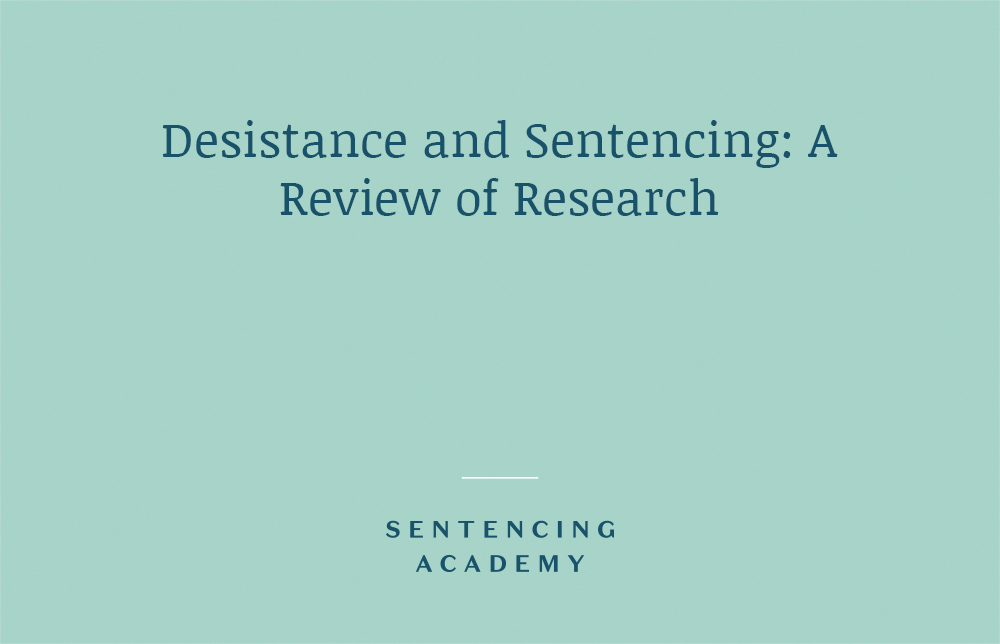
By Dr Annie Bunce • Desistance is the cessation of offending by those with previous patterns of criminal behaviour. Desistance is a gradual, non-linear process, not simply a one-off event. This paper reviews research on the desistance process and considers the implications of key findings for the sentencing process. • Research into offending […]
Fines: A review of the sanction, its use and operation, and research evidence
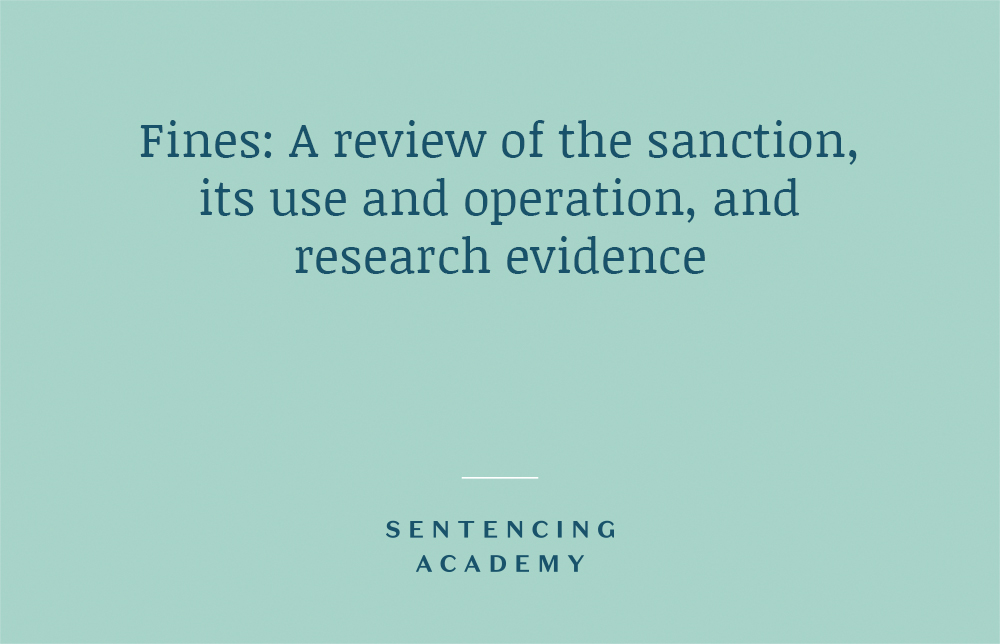
By Dr Jay Gormley • Criminal fines are the most common criminal sanction and account for about 75% of principal sanctions issued by courts. As a principal sanction, fines are most commonly used for relatively less serious offences where an out of court disposal (OOCD) or discharge is not appropriate or possible. However, fines can […]
Sentencing Historic Offenders: September 2022
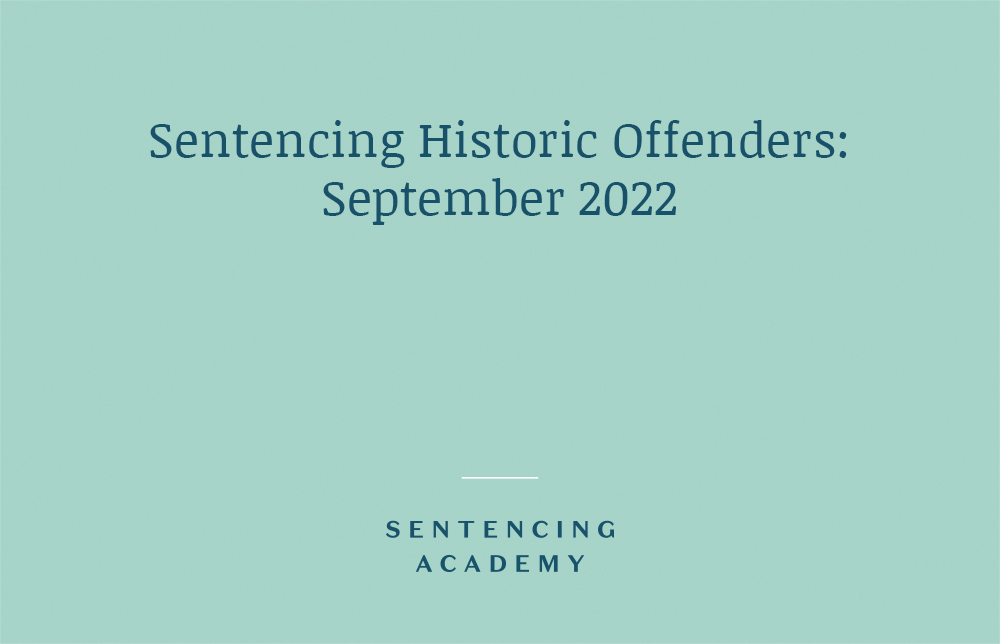
By Dr Gabrielle Watson This paper reviews approaches to the sentencing of non-recent or ‘historic’ offenders in England and Wales. These include – but are not limited to – late prosecutions for historic sexual offending which have dominated the media in recent years. • The sentencing of historic offenders is a notoriously difficult task, […]
Deferred Sentencing: August 2022
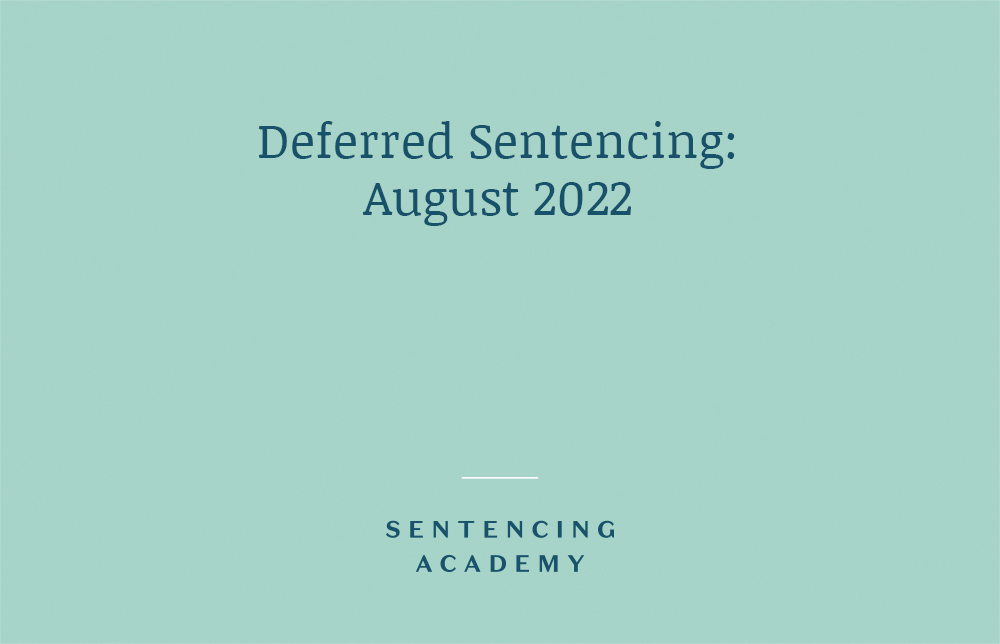
By Dr Elaine Freer • Deferred sentences are available to any judge or bench of magistrates sentencing a defendant in the magistrates’ court or Crown Court. They have been available in England and Wales since the Criminal Justice Act 1972. They are currently found in section 3 of the Sentencing Act 2020. • […]
Mental Disorder, Disability and Sentencing: June 2022
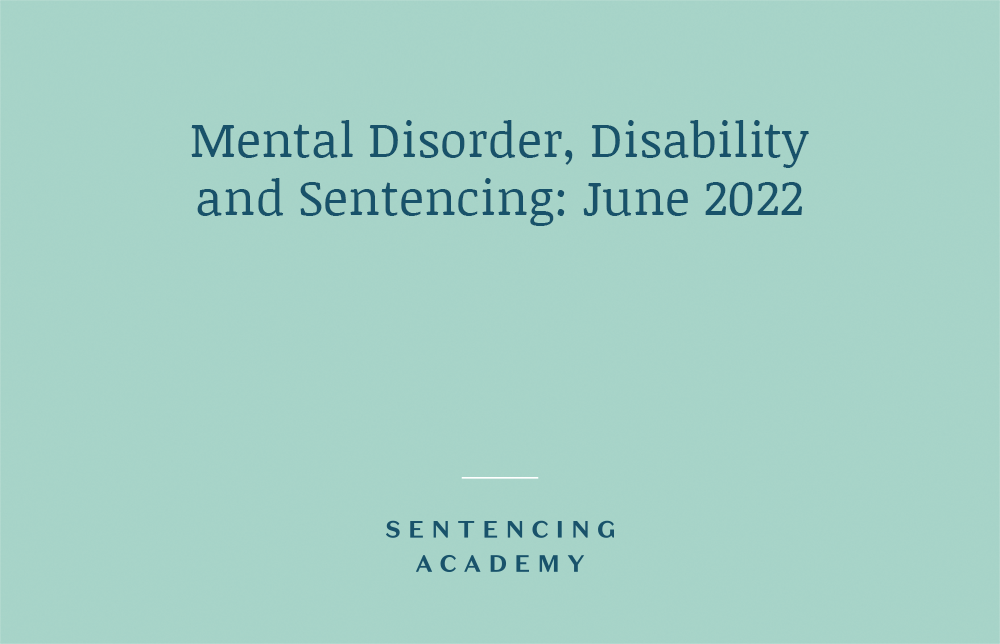
By Dr Ailbhe O’Loughlin • This paper addresses sentencing practices and policies in respect of convicted offenders with mental disorders, disabilities or impairments. • It considers the alternatives to custody available at sentencing that allow sentencing courts to divert convicted offenders away from punishment in prison and, where appropriate, towards treatment in the […]
Pre-Sentence Reports: April 2022
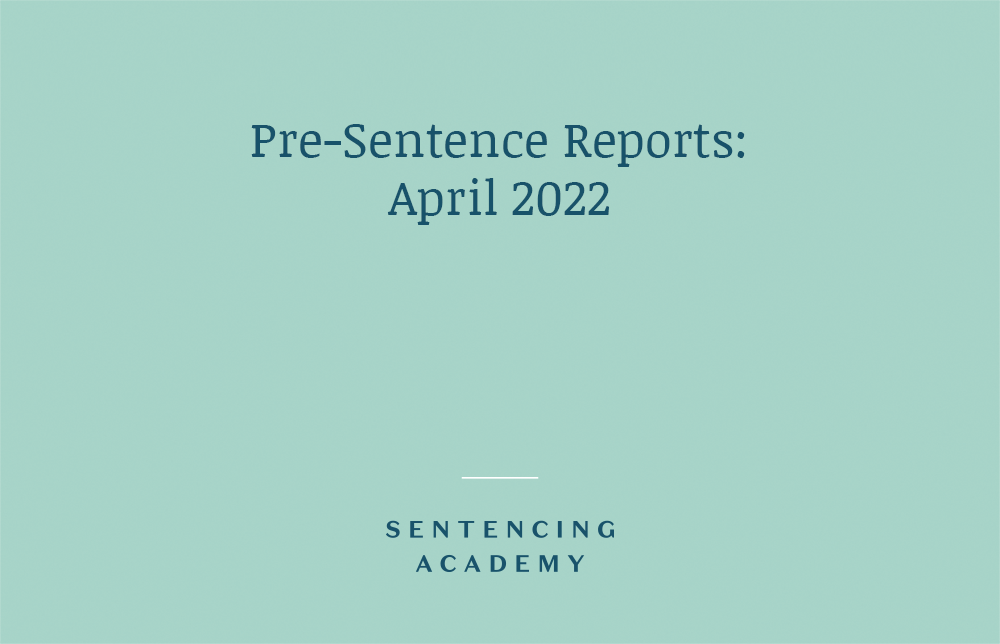
By Dr Gwen Robinson • In order for courts to craft and impose appropriate and effective sentences, sentencers need an adequate amount of information about the offender and his or her personal circumstances. The advocate’s submission on sentencing will supply some of this material. The most important source of information, however, is the pre-sentence […]
Intoxication and Sentencing: January 2022
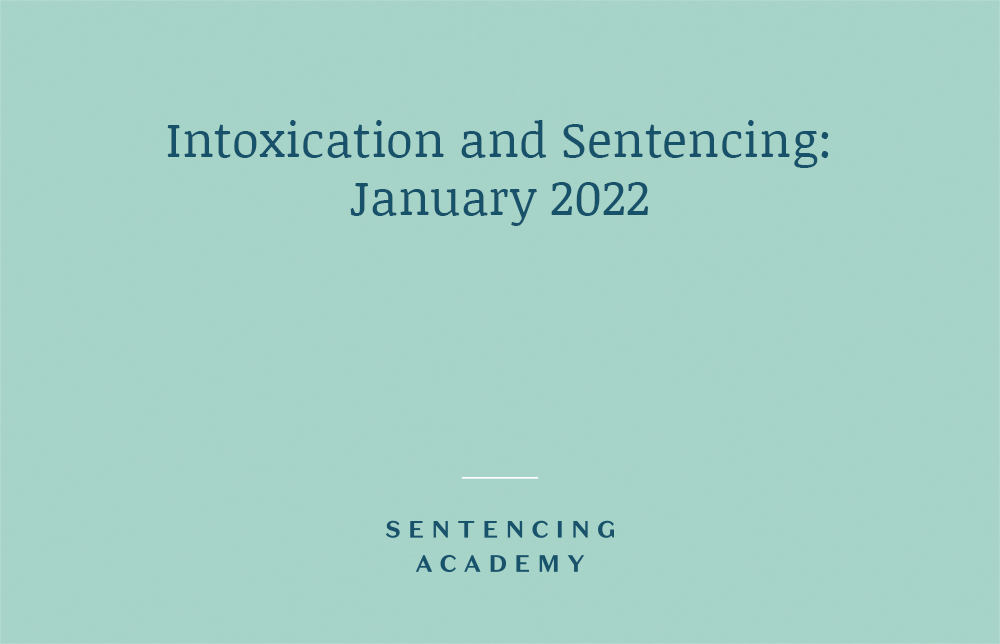
By Dr Carly Lightowlers • Intoxication resulting from substance use commonly features as a contributory factor in offending and thus in many cases sentenced by the courts. Despite this, the role of intoxication at sentencing has received little research attention. In England and Wales, no formal sentencing guidance on how intoxication ought to be […]
Respect and Legitimacy at Sentencing: November 2021
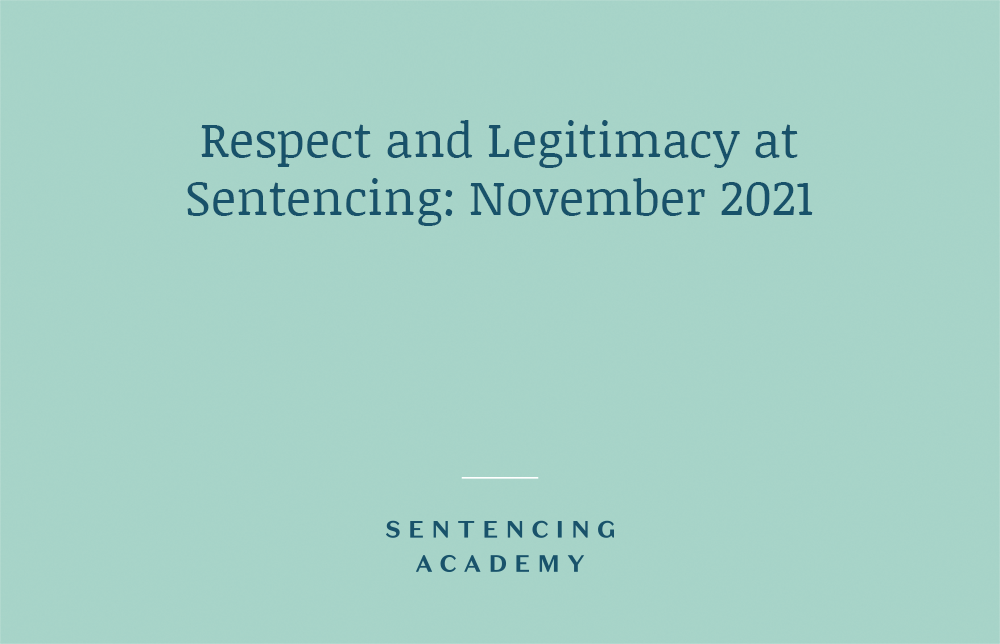
By Dr Gabrielle Watson This paper offers a rare joint discussion of respect and legitimacy at sentencing in England and Wales. A review of research reveals that relatively little is known about defendants’ perceptions of legitimacy at sentencing, and even less about their perceptions of respect, despite the dominance of these concepts elsewhere […]
Defendants’ Understanding of Sentencing: November 2021
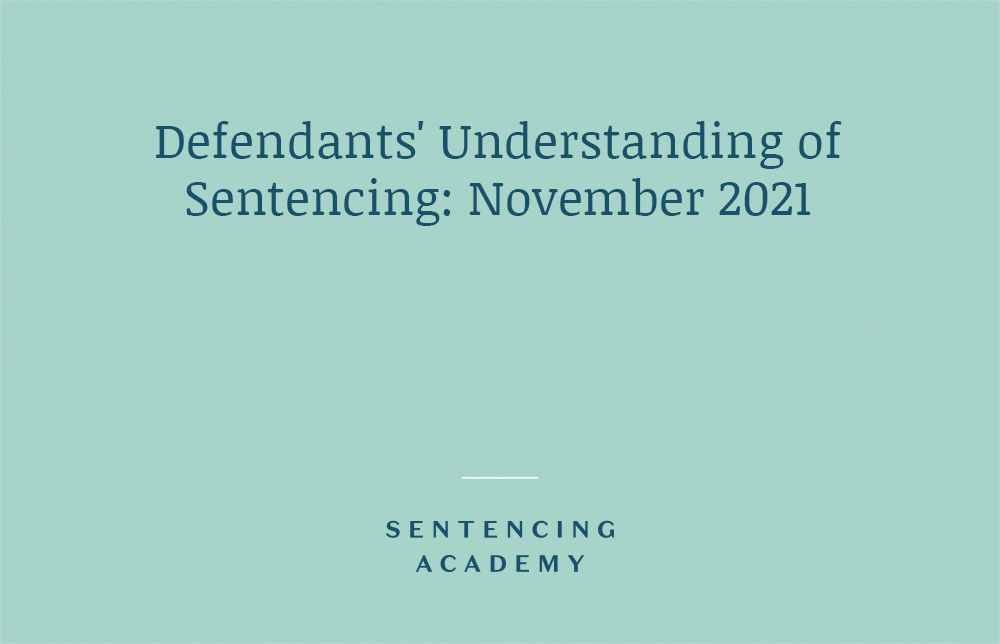
By Jessica Goldring • Underpinning the sentencing framework is an assumption that defendants understand sentencing practice and will respond accordingly. For example, policymakers often presume that potential offenders will be deterred from committing offences by the prospect of longer sentences. However, very little is known about the extent to which those being sentenced understand […]
The Suspended Sentence Order in England and Wales: September 2021
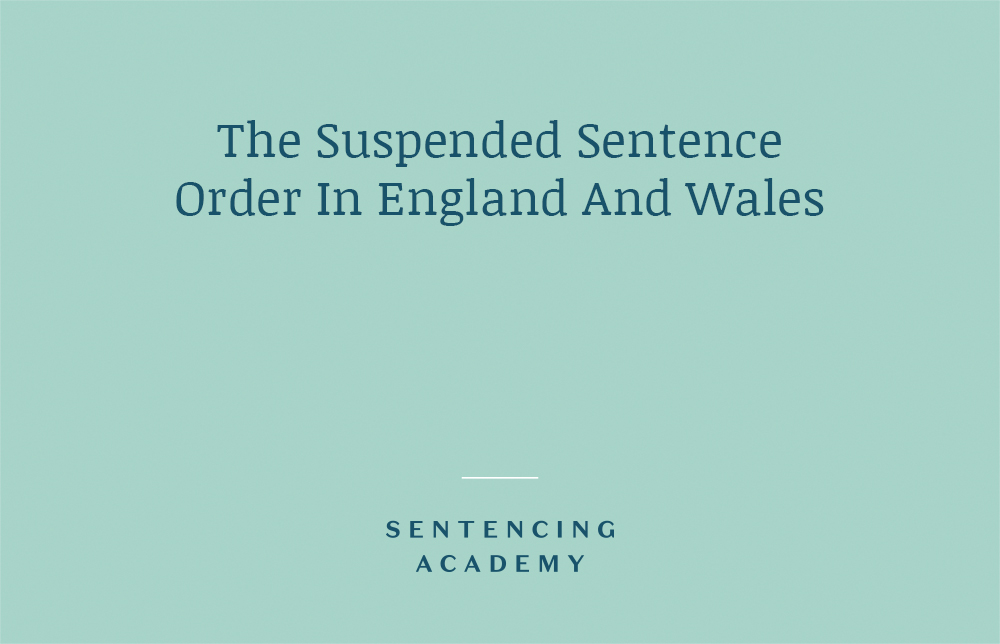
By Eleanor Curzon and Julian V. Roberts • The Suspended Sentence Order (SSO) is a custodial sentence option available to magistrates and judges in England and Wales. Providing an offence has crossed the custody threshold, and that the sentence to be imposed is not less than 14 days and not greater than two years […]
Ethnicity and Custodial Sentencing: June 2021
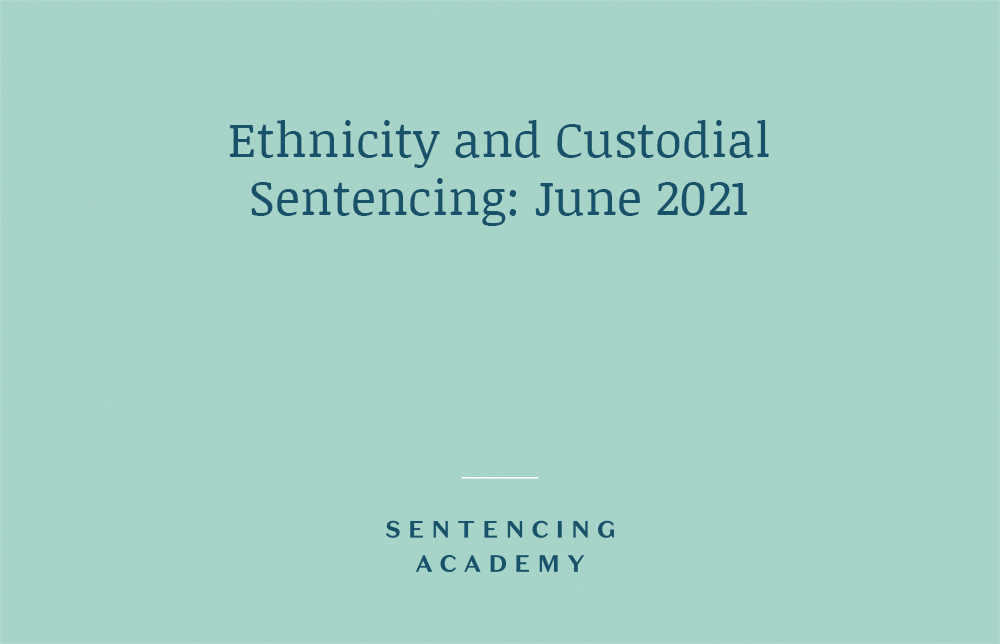
By Julian V. Roberts and Jonathan Bild • Over the past 30 years a number of official reports have demonstrated differences in overall sentencing outcomes between different ethnic groups. However, many of these reports do not control for legallyrelevant case characteristics, such as previous criminal records and whether or not a guilty plea has […]
Community Orders: March 2021
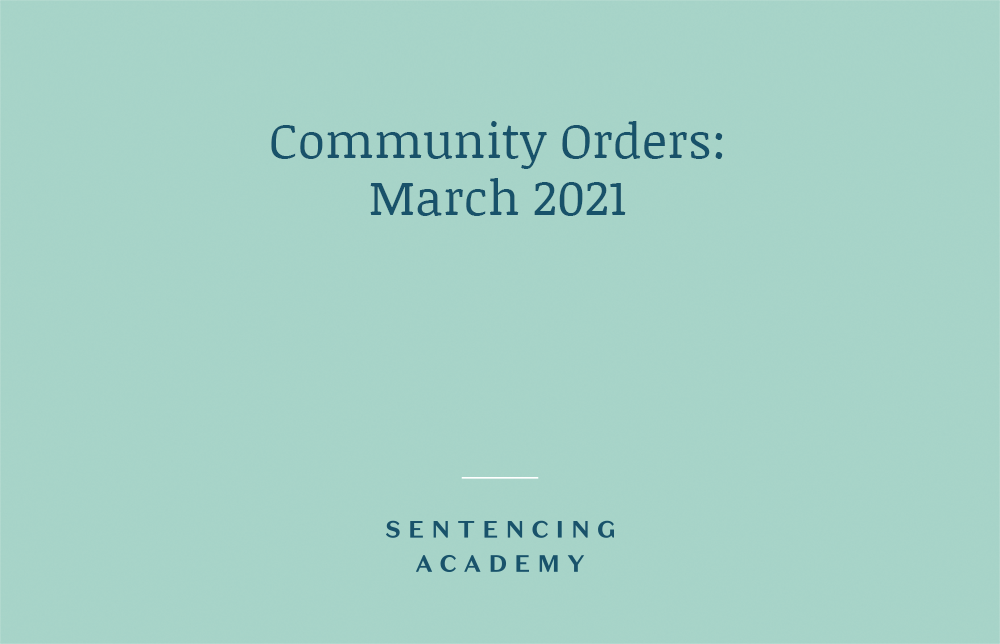
By Dr Eoin Guilfoyle • The Community Order (CO) is one of the non-custodial sentencing options available to magistrates and judges in England and Wales. It allows magistrates and judges to choose between 15 requirements, combining them if needs be, when sentencing a person. The CO can fulfil any of the purposes of sentencing. […]





